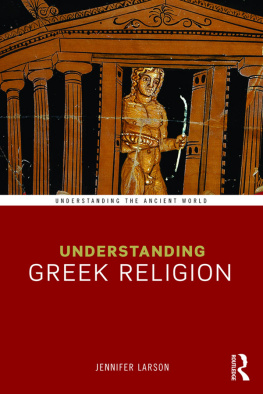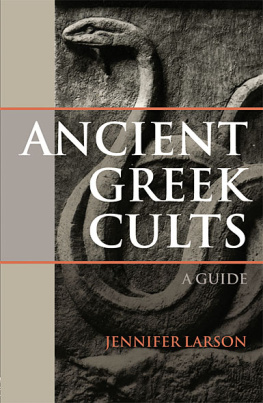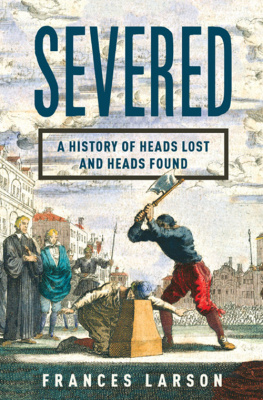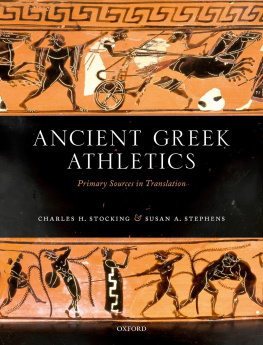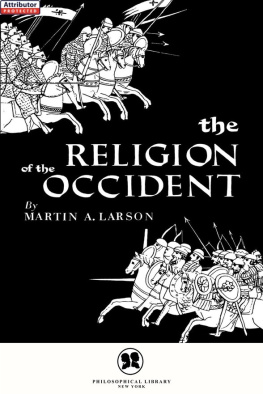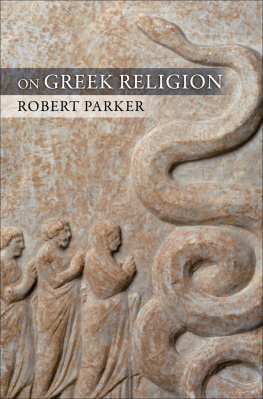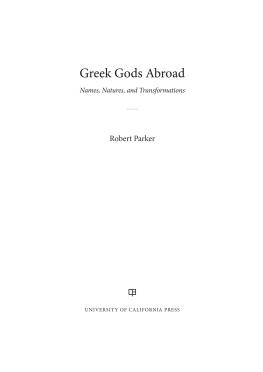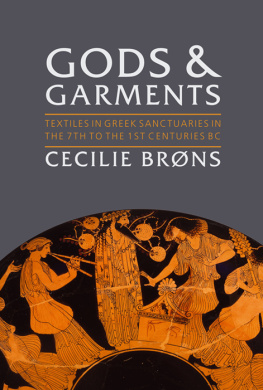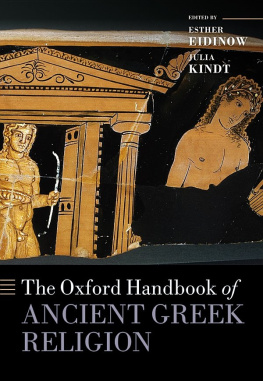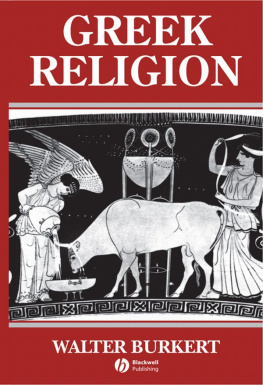Understanding Greek Religion
Understanding Greek Religion is one of the first attempts to fully examine any religion from a cognitivist perspective, applying methods and findings from the cognitive science of religion to the ancient Greek world. In this book, Jennifer Larson shows that many of the fundamentals of Greek religion, such as anthropomorphic gods, divinatory procedures, purity beliefs, reciprocity and sympathetic magic, arise naturally as by-products of normal human cognition. Drawing on evidence from across the ancient Greek world, Larson provides detailed coverage of Greek theology and local pantheons, rituals including processions, animal sacrifice and choral dance, and afterlife beliefs as they were expressed through hero-worship and mystery cults.
Eighteen in-depth essays illustrate the theoretical discussion with primary sources and include case studies of key cult inscriptions from Kyrene, Kos and Miletos. This volume features maps, tables and over twenty images to support and expand on the text, and provides conceptual tools for understanding the actions and beliefs that constitute a religion. Additionally, Larson offers the first detailed discussion of cognition and memory in the transmission of Greek religious beliefs and rituals, as well as a glossary of terms and a bibliographical essay on the cognitive science of religion.
Understanding Greek Religion is an essential resource for both undergraduate and postgraduate students of Greek culture and ancient Mediterranean religions.
Jennifer Larson is a professor of classics at Kent State University. Her research interests include Greek poetry, mythology and religion. She is the author of Ancient Greek Cults: A Guide (2007) and Greek Nymphs: Myth, Cult, Lore (2001).
Understanding Greek Religion is the best possible introduction to ancient Greek religion. There is more to the Greek religion than poetic myths and strange rituals. Jennifer Larson starts from the crucial idea that the ancient Greeks were like us, in that they shared the same mental processes and lived in the same world. Larson shows how this means that there is a lot more that can be said about the role of religion in their lives than simple studies of the ancient texts can reveal. Anyone at all interested in ancient Greek religion should read this book.
Professor Hugh Bowden, Kings College London
Understanding Greek Religion
A cognitive approach
Jennifer Larson

First published 2016
by Routledge
2 Park Square, Milton Park, Abingdon, Oxon OX14 4RN
and by Routledge
711 Third Avenue, New York, NY 10017
Routledge is an imprint of the Taylor & Francis Group, an informa business
2016 Jennifer Larson
The right of Jennifer Larson to be identified as author of this work has been asserted by her in accordance with sections 77 and 78 of the Copyright, Designs and Patents Act 1988.
All rights reserved. No part of this book may be reprinted or reproduced or utilised in any form or by any electronic, mechanical, or other means, now known or hereafter invented, including photocopying and recording, or in any information storage or retrieval system, without permission in writing from the publishers.
Trademark notice: Product or corporate names may be trademarks or registered trademarks, and are used only for identification and explanation without intent to infringe.
British Library Cataloguing-in-Publication Data
A catalogue record for this book is available from the British Library
Library of Congress Cataloging-in-Publication Data
Larson, Jennifer (Jennifer Lynn)
Understanding Greek religion: a cognitive approach / Jennifer Larson. First [edition].
pages cm. (Understanding the ancient world)
Includes bibliographical references and index.
1.GreeceReligion.I.Title.
BL783.L38 2016
292.08dc23
2015032550
ISBN: 978-0-415-68845-1 (hbk)
ISBN: 978-0-415-68846-8 (pbk)
ISBN: 978-1-315-64701-2 (ebk)
Typeset in Times New Roman
by Apex CoVantage, LLC
In Memoriam
Walter Burkert
Contents
Illustrations
Maps
Tables
The human mind is not, after all, a blank slate upon which culture inscribes patterns of infinite variety. Instead, our minds are equipped from birth with an extensive collection of software, mental tools which have evolved, just as our hands and teeth have evolved. Like teeth, not all of these tools are fully developed at birth. The best-known example is the universal grammar described by Noam Chomsky, which permits babies to learn their native language quickly and (relative to later second-language acquisition) effortlessly. Even as such tools enhance our cognitive abilities, they shape our cognition: our special ability to recognize human faces, for example, causes us to see them in everything from clouds to emoticons.
Cognitive science is the interdisciplinary study of the mind and its software, as opposed to neuroscience, which deals with the hardware of the brain and nervous system. The cognitive science of religion (CSR) is a subfield which studies religion as a set of beliefs and behaviors rooted in the evolutionary development of the mind. I hasten to add that there is no god gene, and we are not hardwired to be religious. Rather, mental tools which have evolved for other purposes produce a tendency to favor and transmit the beliefs and behaviors we call religious. Despite the variation which has led some theorists to consider religions incommensurable, striking cross-cultural patterns exist in the ways we humans mentally represent gods, spirits and the dead, how we behave toward them, the things we expect from them and how they affect our moral thought. Religion is by no means limited to interactions with these superhuman beings, yet such interactions are a hallmark of religion.
This book is the first to apply a wide range of concepts and findings drawn from CSR to ancient Greek religion, and one of the first attempts to fully examine any religion from a cognitivist perspective. As I write in 2015, however, cognitive science is not unknown to Classicists. Its usefulness in the study of oral transmission has been recognized by Homerists, and it has caught the attention of archaeologists. In the area of ancient religion, a few Romanists and scholars of Christianity and Late Antiquity have applied cognitive perspectives. Festingers famous theory of cognitive dissonance has long informed Henk Versnels work, and he has taken account of other cognitivist research. Yet CSR has yet to gain much of a foothold among scholars in our discipline. Why make it the foundation for an introductory book, a genre which normally synthesizes familiar and well-established interpretations?
First, understanding Greek religion requires that we ask what religion itself is, and why religious beliefs and practices are ubiquitous in human cultures. CSR offers causal explanations of religious concepts and behaviors that recur cross-culturally, such as superhuman agents, divine anthropomorphism, reciprocity, magic, divination and purity practices. While the differences between Greek religion and other religions (say, Christianity or Hinduism) are obvious and undeniable, all religious beliefs and behaviors share the same cognitive foundations, because we all belong to one species equipped with one kind of mind. Individual and cultural diversity do not erase the fact of this unity any more than variable food choices and cuisines erase the fact that we all share the same nutritional requirements and an adaptive (or in many modern contexts, maladaptive) tendency to prefer sweet foods. To moderns, Greek religion can seem alien and bizarre, with its bloody sacrifices, dances and material gods. But the Greeks were not naively credulous people who inexplicably believed in weird things and kept performing primitive rituals simply because they were traditional. In fact, their tacit inferences about interaction with the gods had a surprising amount in common with those of other theists, no matter the period or culture.

